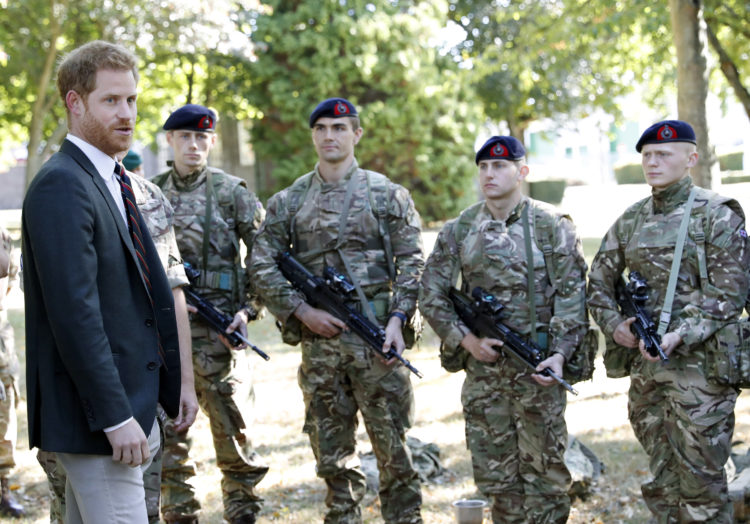London, United Kingdom—The British government has announced an additional deployment of troops in Ukraine and a package of financial support.
The British Defense Secretary Gavin Williamson said that an extra contingent of Royal Marines would deploy to the eastern European country as an extra layer of deterrence against Russia.
The Royal Marines are Britain’s premier amphibious and light infantry unit. They will be providing combat and naval training to the Ukrainian military as part of Operation Orbital. The training and advising mission began in 2015. Hitherto, British servicemen have trained close to 10,000 Ukrainian soldiers. Training has been focused on medical, infantry, anti-tank, anti-artillery, and anti-sniper skills. British troops have also provided Improvised Explosive Device (IED) detection and logistics support to their Ukrainian counterparts.
The UK isn’t the only country supporting Ukraine in her struggle against the Russian-supported separatists. The U.S., Canada, and several European countries have committed to training and logistical support.
Williamson, who is currently touring the front-line in eastern Ukraine, said that “the UK supported the people of Ukraine and is firmly committed to its sovereignty.”
“The Kremlin is trying to undermine our values, destroy our way of life, and reverse the outcome of the Cold War. Its behavior only increases the risk of miscalculation and the prospect of crisis turning to chaos,” he added.
This was Williamson’s first visit to Ukraine as Britain’s Defense Minister.
On a separate move, the UK approved a $46 million support package to the Ukrainian government. The funds will specifically target defense reform, peace-building, corruption, and counter-propaganda schemes.
“With Russia continuing its efforts to destabilize Ukraine and the occupation of Crimea ongoing, Britain must help to lead the way on ensuring Ukraine has a bright, stable and prosperous future,” said the former British Foreign Secretary Boris Johnson (the package was approved whilst he was still in office).
Ukraine’s troubles began in 2014. Following the Maidan Revolution, which ousted the pro-Russian President Viktor Yanukovych, and pivoted the country toward the EU and West. Russia took advantage of the social unrest to invade and illegally seize Crimea. Russian troops have also supported the Donetsk separatists, who have seized a considerable amount of territory close to the Russo-Ukrainian border. The Ukrainian military has suffered more than 3,000 dead and 11,000 wounded since 2014.
“That’s why we continue to provide support, which will help Ukraine to build on the progress it has made since 2014 and on key reforms since the inaugural London Reform Conference last year. We do all this because it is essential for Ukraine’s future security and prosperity, and because it is essential for upholding our European values, our security and our prosperity,” added Johnson.
Already have an account? Sign In
Two ways to continue to read this article.
Subscribe
$1.99
every 4 weeks
- Unlimited access to all articles
- Support independent journalism
- Ad-free reading experience
Subscribe Now
Recurring Monthly. Cancel Anytime.











COMMENTS